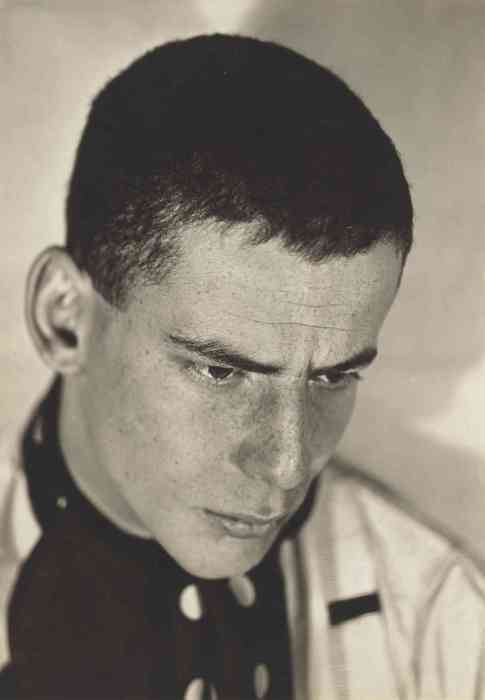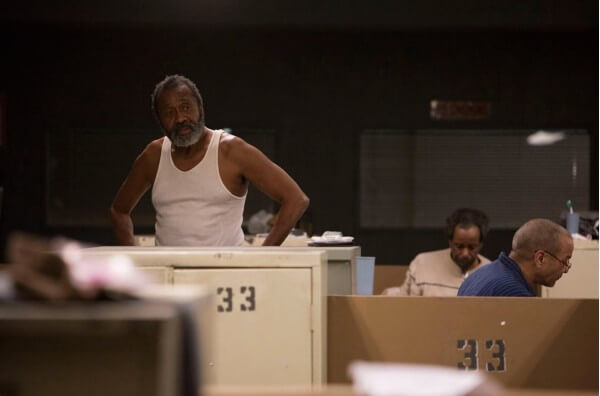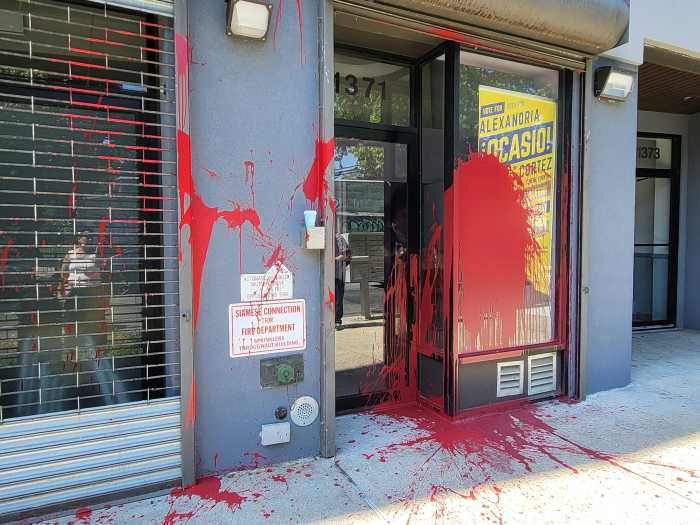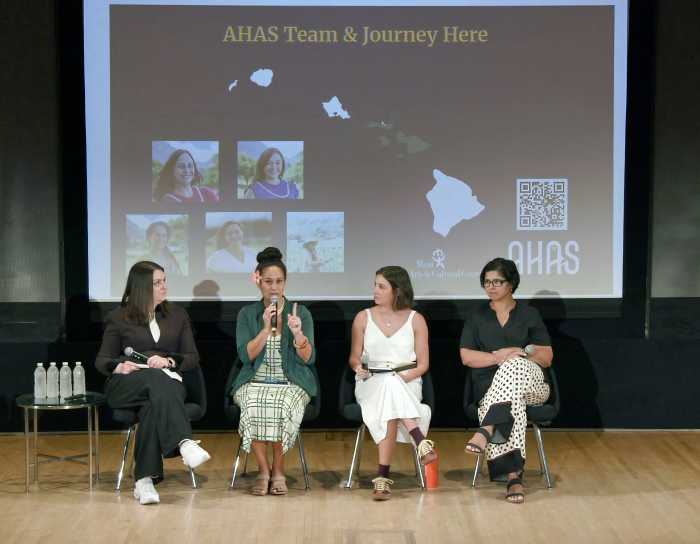Carol Lawrence, the original “West Side Story” Maria whose latest triumph on stage comes in Jason Odell Williams’ play “Handle with Care.” | DAVID NOH
A Christmas angel blessed my holiday season in the form of Carol Lawrence, who — first of all — gave a delightfully strong, touching performance in Jason Odell Williams’ play “Handle with Care” (Westside Theatre Downstairs, 407 W. 43rd St., through Mar. 30; telecharge.com) and then met me for one of the most scintillating interviews of my career. This living legend defies the years with her vibrant energy, onstage and off, and is ravishing to look at, decked out as she was in the reddest coat I’ve ever seen.
When I asked her how she stays so darn perky, she said, “I no longer take dance class, but I have a wonderful King Charles Cavalier spaniel who I walk, who keeps me strong. [Producer] Douglas Denoff is an old friend of mine who said, ‘I have this property that I’d like to star you in Off Broadway, this warm and wonderful comedy, and you would be an Israeli grandmother.’ I said, ‘That’s close to who I am, anyway, an Italian grandmother — they’re all the same, very hands-on. When something’s wrong, they can read it in your eyes and make it right, and they always have to feed you. In the long run, it’s just an expression of love and I think this is what people are responding to.”
One gloriously enduring triple threat and Eddie-Awarded 10 best films of 2013
Lawrence’s career has been extraordinarily varied, with innumerable theater and television credits. I was fascinated to know that she was directed by the great Ida Lupino in “Iron Silence” (1961), and led off with a question about her: “Oh, she was delightful, could never remember anyone’s name, so she called me ‘Baby,’ and Vic Morrow was ‘Honey.’ She was really gentle, always there nurturing you, so I loved her. And as an actress, she identified with whatever your problem was and came in to help you, as opposed to a Jerry Robbins, who just puts you down and nobody picks you up off the bloody floor.”
Robbins, of course, directed Lawrence as Maria in the epochal “West Side Story,” and when I asked her what it was like to hear that music for the very first time, she replied, “The cast always knew we had a phenomenal, legendary, monumental, important property, and we only wondered whether the critics would accept it. Our out-of-town audiences loved it — on opening night they screamed and stood, as did every audience. But we didn’t know whether the seven New York critics then would embrace us.
“We broke every possible rule: there had never been a tragic musical comedy and we created musical theater, killing people right and left with social content. A lot of people felt we were glorifying juvenile delinquency. Robbins’ thrust was that all the bad and the hatred was not to be tolerated, and that’s the whole message of the play.
“He was a really tough director on everybody. One night he gave me 65 notes for one performance. I don’t know how anybody could be that bad. But obviously he zoomed in on my performance and mentioned every single thing he didn’t approve of and made me write them down, which I did, happily.
“Peter Gennaro came into my dressing room and asked, ‘How many notes did he give you, because Larry Kert is crying in his dressing room, he got 16, and Mickey Calin is upset, he got 12.’ He counted mine and said, ’Sixty-five! What I couldn’t believe was you smiling back at him as he gave them to you!’ I said, ‘If he’s going to take the time to correct me, I’m thrilled and appreciative.’ And they were all the right, good tips. The tiniest things. He told me when I put my hair over my head during ‘I Feel Pretty,’ ‘Are you aware that you look like Beulah Witch?’ I said no, but he didn’t say I couldn’t do that, so I kept it in because it got a laugh because I come out and I am crazy at that moment.
“Larry Kert was magnificent. On the first day of rehearsal, Jerry said, ‘Now if I look up on that balcony and don’t feel that you two are absolutely in love, I have three other understudies who are ready to go on for each of you.’ I turned to Larry and said, ‘I really love you,’ and he said it right back to me, and we really did. I still think I’m going to come to New York and find him.”
Asked about losing her role in the movie version, Lawrence said, “I did a screen test, but Jerry told me to do my scene one way and [co-director] Robert Wise told me to do it another. And instead of saying, ‘Stop! Let’s do it twice,’ I did it as a schizo and I wouldn’t have hired me either. That was painful. You work that hard to create an entity, but at that time you had to have an international star that was known around the world, and that was Natalie [Wood]. She was very close to Robert Wise, very dear friends, and was committed to it long before.”
Between working steadily and fighting off the advances of Ricardo Montalban and David Merrick, Lawrence was also in a couple of legendary flops, “Subways are for Sleeping” — “The original book was truncated and the episodic script was weak, about homeless characters living in museums and department store bathrooms, probably would work today” — and “Saratoga.”
“Unfortunately, Morton Da Costa decided he was going to write, produce, publicize, and direct, and nobody can wear that many hats,” Lawrence said of “Saratoga.” “Forty people in the cast, two treadmills, and a turntable, with Cecil Beaton designing sets and costumes. The curtain went up and the audience would gasp. It was almost like a painting — overwhelming — and it was almost too much. Too many subplots, hard for the audience to follow, and we spoke at each other in reams.
“In a show, the big points have to be sung or danced and connected with wonderful dialogue, like Laurents did in ‘West Side,’ but we didn’t have that. Cecil was a dream, putting me in an authentic whalebone corset so my waistline was 21 inches, and I had to breathe, sing, and dance in that. But everybody looked stunning and he was gentle and ever creative. Every single dress was unique — there weren’t two of anything — for the entire cast.”
YouTube hosts a pretty spectacular array of Lawrence’s numerous, memorable TV appearances, in which she appeared with nearly every show biz legend of the era: “Bing Crosby was a great disciplinarian with his kids, I know, because I worked with his sons. I did a special with him and was at the NBC studios at 9 and there was a wall-long buffet with omelets, waffles, anything you wanted. Dean Martin wasn’t there and finally showed up at 10:30 in a trench coat he’d slept in, saying, ‘Whose idea was it to start so early?’ Bing said, ‘Mine, because I’m used to singing early on the radio.’ Dean said, ‘Well, I’m not on the radio.’ ‘What can I get for you, Dino?’ ‘I’ll have a Scotch on the rocks.’ ‘Well, I have no alcohol here.’ ‘Well, forget the rocks!’
“Dean was always so funny, the same off screen, just a little glow, never drunk, but there was a relaxed camaraderie nobody else had. He broke the fourth wall, telling the audience, ‘I got an idiot card here, cuz I can’t memorize it.’ He was so funny, they’d keep his mistakes in. An angel.
“Gene Kelly saw me in ‘West Side,’ came backstage, and said, ‘I want to do a TV special with you, kid. Can you come to California next week?’ He was one of the reasons I went into show biz, but I said I had a contract and wouldn’t get time off until the next year when I had two weeks.
“He said, ‘Okay, I’ll wait for you.’ I thought he was going to dance with Cyd Charisse and maybe I would have one number, but it was with just him, Donald O’Connor, and me. I died and went to heaven, and we sang ‘Singin’ in the Rain’ without Debbie Reynolds! He brought me to Monte Carlo for a Red Cross gala with Princess Grace and Michel Legrand. Anything and everything was possible then!
“I was hosting a cerebral palsy nationwide telethon and called everybody, including my dear paisan Frank Sinatra ‘cause I cooked for him in his house at Palm Springs. He said, ‘I want you to tell them I’m coming on the show, kid, and I’m the last guest, but I can’t sing on your show because I’m doing a benefit that night and they have all my music.’ So he came on with idiot cards and a speech prepared. His conductor was my conductor, Joe Aranello, who called from the piano, ‘Come on, Frank, you know this!,’ and he played ‘They Cant Take That Away from Me.’ Frank said, ‘Okay, but do it in this key, so she can sing it with me.’ I said, ‘I don’t know it.’ ‘Don’t worry, I’ll feed it to you, kid.’
“So we did it, and we were one thousand dollars short of beating the previous donation record. He walked off to his benefit but spoke to my stage manager, who told me that Frank said, ‘I’ll make out a check for ten thousand so it goes over the limit.’ How do you do that? So I called his secretary, Dolores, the next day and asked, ‘What is his favorite Italian food?’ Lasagna, of course, the one that takes the most time! ‘Okay, when is he in Vegas?,’ and opening night I came with big pan of hot lasagna, my mother’s recipe.
Lawrence’s mother was always her biggest cheerleader, but her father “wanted me to be a lawyer. ‘Well, Dad, you put those tap shoes on me and I never took ‘em off and it’s gonna look dumb in the courtroom.’ ‘That’s not funny.’ He never really approved, did come to ‘West Side’s’ opening night, but never condoned the fact that I came to New York instead of attending Northwestern.”
Lawrence’s marriage to Robert Goulet made them the ultimate show biz couple: “We were the wedding cake dolls and nobody can be that perfect or live up to those eternal smiles. But we were together 14 years and had two wonderful sons, Christian and Michael. Michael is a psychiatric nurse and Christopher is studying to be a nurse. Neither of them exhibited the need to perform, and to do that you have to need it as much as you need your kidneys. If you don’t have that kind of drive you mustn’t tackle it, because it’s much too difficult and painful. They’re out for a committed occupation with no ifs, ands, or buts. People are always going to be ill and need a nurse and that’s where they are. I applaud that.”

And, my annual Eddie Awards, named after the great gay director Edmund Goulding, for the past year’s 10 best films go to the following, in alphabetical order:
“A.C.O.D.” (Stu Zicherman)
“Blue is the Warmest Color” (Abdellatif Kechiche)
“Frances Ha” (Noah Baumbach)
“In a World” (Lake Bell)
“The Inevitable Defeat of Mister and Pete” (George Tillman, Jr.)
“In the House” (François Ozon)
“The Invisible Woman” (Ralph Fiennes)
“Short Term 12” (Destin Cretton)
“Therese” (Charlie Stratton)
“The To Do List” (Maggie Carey)



































